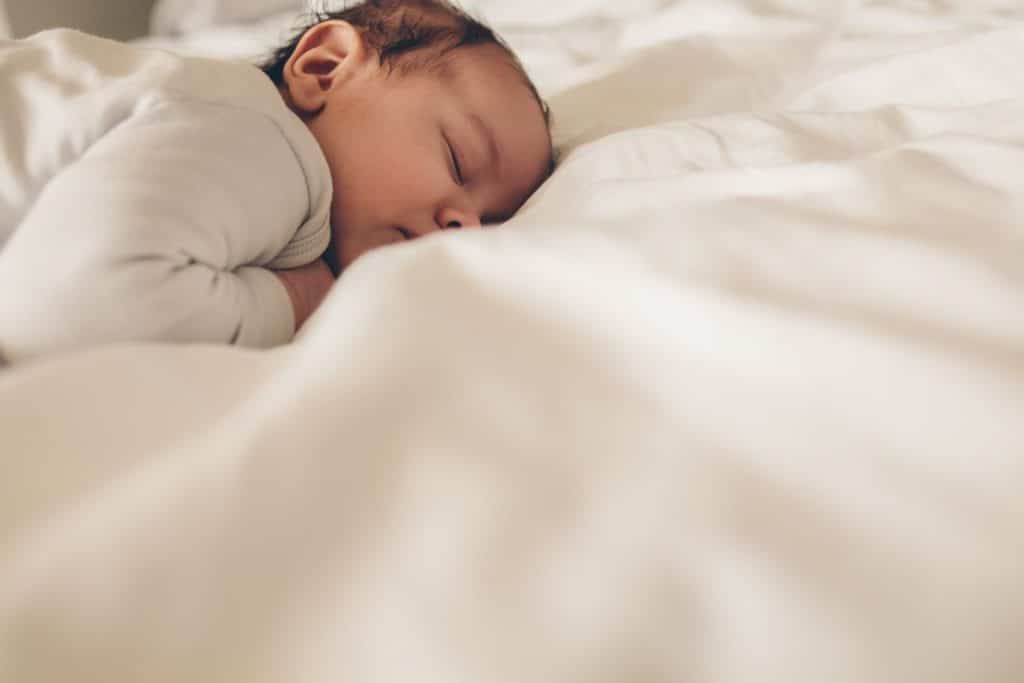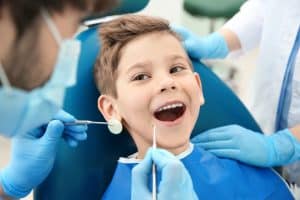Approximately 50 % of babies grind their teeth during their first year of life. Bruxism in younger children usually stops spontaneously. Find out what causes bruxism and how to relieve your baby of bruxism.
Why does baby grind his teeth?
Bruxism is the result of unconscious and untimely contractions of the jaws.
These contractions occur mainly during sleep and particularly during the deep sleep phase. During the micro-awakening phases, brain activity, heart rate and muscle tone increase. This phase of sleep is accompanied by arm and leg movements and possible involuntary teeth grinding.
Bruxism can also be explained by an imbalance of the jaw that leads to grinding of the baby's teeth.
The exact causes of bruxism are still unknown. However, several factors can contribute to it. Abnormal tooth alignment, difficulty relaxing at night, and poor nutrition can all have an impact on bruxism. In addition, stress and anxiety are aggravating factors for teeth grinding.
What can be done to limit baby's teeth grinding?
Solutions for baby who grinds his teeth while sleeping
In most cases, bruxism in babies stops spontaneously. Since teeth grinding comes from involuntary movements at night, it is difficult to prevent.
To limit teeth grinding in babies, it is advisable to establish a bedtime routine with relaxation activities. This allows the child to relieve the stress of the day before falling asleep.
If you hear your baby grinding his or her teeth when he or she sleeps, changing the position of your baby can help limit bruxism.
Osteopathy sessions can reduce tension in the mandibular joint and improve the balance of the jaw to limit bruxism.
If your child's baby teeth are very smooth, all at the same height and straight, you should make an appointment with a pediatric dentist. He or she can examine your child's teeth and determine the cause of the bruxism.
If your baby's teeth are properly aligned, then bruxism is related to stress or anxiety. Appointments with a psychologist can solve this problem.
Relieving baby's teething problems
It is common for infants to grind their teeth during teething. This is because the pain associated with the eruption of baby teeth causes bruxism. Babies grind their teeth to relieve their gums.
To limit this grinding of the teeth, it is advisable to relieve the pain during teething. Dental gels can be applied to the gums. The use of teething rings placed in the freezer also relieves the gums of babies. Bruxism stops as soon as baby is relieved.
Teething baby and links to autism
A baby who grinds his teeth may also have a sensory deficit. In order to compensate for this deficit, the baby seeks stimulation and sensory information around the oral sphere. Thus many cases of bruxism in children with autism are observed. Autism and teeth grinding can be linked, but it is necessary to consult specialists to establish a diagnosis in the context of autism.
Teeth grinding in babies is a common phenomenon and in most cases is not harmful to the teeth. However, bruxism can persist during childhood and have consequences on permanent teeth. It is therefore recommended to consult a pediatric dentist regularly to ensure good oral health.


